Truth and Consequences
Chely Wright wants people to ‘Like Me’ for who, not what, she is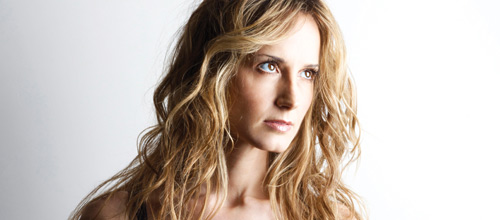
by Nancy Ford
When chart-topping country singer Chely Wright announced earlier this year that’s she’s a lesbian, she may have dashed any hope of future bookings as a headliner at the legendary Houston Livestock Show and Rodeo.
Ask her if she cares.
“I can’t wait to come down and sing songs to an audience that I know will appreciate the ‘entire me,’” Wright told OutSmart prior to her appearance this month in Houston.
“Music lovers who accept me!” the author of Like Me, her heart-wrenching autobiography, adds with anticipatory glee. “This might be one of my favorite shows of the year!”
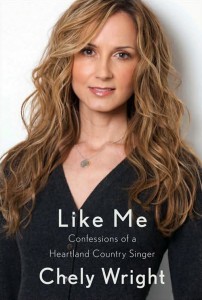 Wright’s successful trek out of the closet, despite her well-publicized previous romance with fellow country star Brad Paisley, is recognized as a daring feat never before attempted by a mainstream country artist. (Despite all her torch and twang, k.d. lang doesn’t count here; she had crossed over to the “adult contemporary” musical category prior to announcing her lesbianism.)
Wright’s successful trek out of the closet, despite her well-publicized previous romance with fellow country star Brad Paisley, is recognized as a daring feat never before attempted by a mainstream country artist. (Despite all her torch and twang, k.d. lang doesn’t count here; she had crossed over to the “adult contemporary” musical category prior to announcing her lesbianism.)
Riding a wave of non-rodeo-esque public appearances following her coming-out announcement, Wright comes to Houston on October 23 to headline a show produced by Girl Jam, a series of concerts and parties catering to lesbians.
“The idea of Girl Jam is to provide women in Houston, especially lesbians, an event to watch great live music by women in their community, and to leave happy,” Girl Jam producer, Julie Mabry, says.
“We want our guests to enjoy the liberty of being LGBT, and to know there are many people who share their experiences—famous people included,” Mabry says, regarding Wright’s appearance.
Here, Chely Wright discusses what motivated her to risk fame and fortune, the consequences of that decision, and her truth—a whole lot of truth.
Nancy Ford: Your big Girl Jam show is in October, which, of course, is National Coming Out month. I guess your October, this year, is a lot different from your October last year, right?
Chely Wright: Very different. I decided to come out in June of 2007, and that’s when I started my book. So this has been a long time in the making. At that time I was 36. If you think hiding that you’re gay for 36 years is hard, I’ll tell you, hiding that you’re coming out for three years is even harder!
That is kind of a long incubation period, there! [Both laugh]
It is, but in my mind, I still believe that it was the right thing to have done. Of course, I could have Twittered it, and said, “Hey y’all, I’m gay!” But I really wanted to do it well. I wanted to be able to have an account of my life and my story. That way, I didn’t have to spend all of my time running around in circles trying to defend my faith, my truth, the complexity of hiding, the complexities of the fear. If anyone wanted to take jabs at me, I could just say, “Look, you can read my book if you want. Otherwise, I don’t have much to say to you.”
You know, what I found is so many people are glad I wrote my entire story. I would have given anything at age 19 or 15 or 30 to have had someone’s story to read.
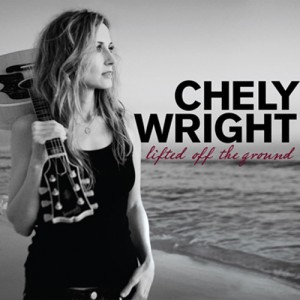 Well, I think your book really does illustrate the process of coming out—that it’s certainly not an overnight decision for anyone, and there are twists and turns to the path that we need to follow, and there’s a wiser way and maybe a not-so-wise way. And your story shows both sides of that in a very honest and human way.
Well, I think your book really does illustrate the process of coming out—that it’s certainly not an overnight decision for anyone, and there are twists and turns to the path that we need to follow, and there’s a wiser way and maybe a not-so-wise way. And your story shows both sides of that in a very honest and human way.
Thank you. There are regrets . . .
[Laughing] That was my next question.
[Also laughing] I don’t have a lot of regrets in my life. I wanted to—to use your word—illustrate. It’s hard to write a memoir and not write yourself as the hero, and I wanted to be proud of the fact that I did not write myself as a hero.
You’re “everywoman”?
Well, you really want people to absorb your book and the truth. And you’ve got to write down the crimes you commit against other people, as painful as it is. You’ve got to write down your mistakes if you want to understand your triumphs.
I regret the carnage and the confusion I caused so many people. That’s one thing that I would like to illustrate to anyone who doesn’t understand a life like mine: when one person hides, you don’t only wreak havoc on yourself, you wreak havoc on everyone around you.
So many people have been critical: “Why does she have to come out? Why can’t she just keep that to herself?”
Well, with all due respect, that’s the thing: a person in hiding damages a lot of people. It’s not fair to me, it’s not fair to best friends, aunts and uncles, sisters, partners, lovers, boyfriends we try to have, girlfriends we try to have. It’s just an unfair way to live, and I’m just really proud that I’ve been able to write all of that down.
If there was a moveable middle, if there were people in the middle who thought they didn’t know gay people, but they knew me, and then they thought, “Well, she’s been a heck of a gal all along . . . ,” if I in any way challenged [their prejudiced] notions, then I’m happy about that.
It seems like the theme of truth is the mainstay of not only what you just said, but in your music and book as well. How did you face the fear of the consequences of coming out? Was the comfort of the truth enough to get you through your fear?
I reached a tipping point. Everyone has one. We all use a balance sheet, I think. I know I had one. For years and years I had a balance sheet. One side was “hiding” and one side was “truth.” And in the middle was “career and livelihood.”
You had a lot to lose.
I had a lot to lose. I had social ridicule that I just thought I couldn’t handle. I had family ridicule. Cultural ridicule. I didn’t want to lose my job. You know, people sometimes forget that singing is how I eat. That’s how I pay for my electricity. It’s not my hobby. It’s not model planes in the park on the weekends. This is how I make my living.
And so I reached my tipping point when I had a gun in my mouth.
Chilling. Absolutely chilling. And it happens every day.
It happens every day, and that’s the crisis. So my balance sheet tipped over on itself. I found myself on my knees praying to God, but praying a different prayer. My prayer had always been, “Help me navigate these waters and keep my secret and find a way to make it all work and have my career and my secret and my partner.” It was always that prayer.
When I reached my tipping point, and my prayer was, “Give me a moment’s peace,” I didn’t care anymore about the property and the real estate and the financial portfolio I had acquired. I am telling you, had somebody said, “I will give you peace, and empty your bank account,” I would have said “Take it.” In fact, that’s exactly what I did.
You’re bringing tears to my eyes.
Well, that’s how emotional I felt about it, too. The day after I had a gun in my mouth, I got on my knees again, and I said, “God, give me peace. Take everything. Do whatever. I don’t care anymore.” I would have lived in a cardboard box if I could just have peace. And [to come out] was the answer I got.
Quite frankly, I have lost financial security, and I don’t care. I don’t care one bit.
How about your fan mail? Are you receiving more words of encouragement or condemnation?
Well, more words of encouragement for now, although I am getting some hate mail. My management doesn’t send me a lot of it. They let me see a little bit of it, because I want to see the tone of it.
Yes, you need to know what’s going on.
Well, I’m real focused on the positive. That’s what matters to me. But we are compiling every bit of mail that comes in through electronic mail, and I will get to it. I want to read all of it.
It must be overwhelming.
It’s thousands of letters. They’re, like, 10-page letters. In particular, one girl said, “I was going to kill myself. You came out. I saw you on the Today Show. I decided not to do it. I was thinking about doing it the day after, but I went and got your book. I read it in the parking lot of the bookstore. I went home, got my parents out of bed. We talked all night. They aren’t in love with the idea that I’m gay, but they didn’t kick me out, and I think I’m going to be okay.”
My goal was to facilitate ease with one person. My goal was to make one 16-year-old kid feel less alone. And, I mean . . . [her voice chokes] I get very emotional about it.
I don’t blame you. In your book, Like Me, you say you look forward to “[helping young people, gay and straight, speak] to their parents and loved ones to help further understanding of what it’s like to face a society that largely condemns homosexuality.” So, mission accomplished.
Have you been invited to speak at any PFLAG events or GLSEN events?
I’m heavily involved in GLSEN. I hit the ground running here a year before I came out. I reached out to Eliza Byard, the executive director of GLSEN. I wanted to become embedded with these organizations before I came out, so I could be very effective the minute I came out. I did the New York Respect awards with GLSEN this year, and then I participated in a very cool event with 17 student ambassadors about six weeks ago here in Manhattan over a weekend. It was a workshop with 17 students who applied out of 1,000 students nationwide—some straight, but mostly gay or transgender students in high school.
The first day was really their learning a lot of things and my telling my story, but the second day, Saturday, was the most amazing day because I got to listen to them. By and large, when I’m asked about the plight of young LGBT students, most of what I [had been previously] saying was kind of supposition—things that I’d read or assumed. But now I know. Now I can speak from a much more educated place about what these situations are. I’m also a speaker at the Out & Equal conference in Los Angeles this year, a diversity conference in Washington DC.
You’re not kidding about hitting the ground running!
No, I’m not screwing around. I mean it! [Both laugh]
Do you expect any of the lyrical content of your songs to reflect your being an out lesbian now? For example, have you ever been tempted to change the lyrics in “Single White Female”?
You know, that’s the one area where I never felt like a liar. I never felt like I was betraying myself in singing he/she songs. And there’s something about country music—there’s an integrity to the song. There’s something about it—I just never felt like I was being untruthful in those ways. So no, I probably won’t change the songs—“Single White Female” is just perfect how it is.
That said, I did Capital Pride this year, and on the third chorus I was looking out at this crowd, and the chorus goes, “Single white female, looking for a man like you.” And don’t you know, on that last chorus, I said, “looking for a girl like you,” and the crowd went nuts! That’s the only time I ever did it, but I had the Capitol building right behind me and it felt awesome! It felt so cool, and they loved it!
You might want to consider that for your show here in Houston. I bet you’d have a similar reaction.
[Laughing] I’ll bet that’s going to happen!
We’d love that. You know, looking at your lyrics and song choices from the past, there were some hints along the way that you might be a lesbian.
There is a song that was kind of a secret song for me. It’s called “Picket Fences” on the Single White Female album. I did have a lot of gay fans that identified with that song and wrote me long letters about how it was really important to them.
There are other “little hints,” like covering Chuck Berry’s “C’est La Vie (You Never Can Tell),” and “Hard to Be a Wife.” There could be some implicit meaning there.
You can’t edit everything, you know. [Laughs] Our psyches are always working.
__________________________________
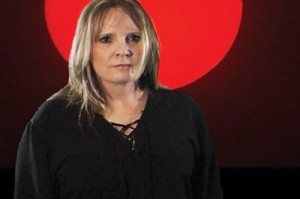
Sidebar
It’s a Houston women’s music festival, but not the Houston Women’s Music Festival
Lesbians who show up in downtown Houston in late October expecting to enjoy the traditional Houston Women’s Music Festival are in for a big surprise. The annual daylong, outdoor, multi-act downtown concert—a must-attend fall fixture on the local social calendar—is on hiatus.
“After a great 15-year run, myself and other key members of the festival agreed that we needed to take a break and refresh for 2011,” says Sharman Petri, producer for the renowned festival presented by Athena Arts Project.
“Houston Women’s Music Festival was initially not going to do anything for 2010 but produce a few small events,” Petri explains. “However, Julie Mabry asked me if we would like to play a supporting role. I thought it would be a good opportunity to not only help present a good music event, but also let our loyal festival patrons know that we are still active.”
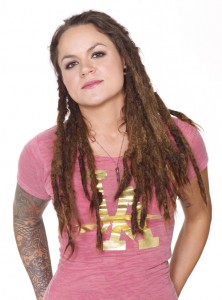
The addition of local women musicians preceding Chely Wright’s set is lending the concert a festival feel. Paige Lewis opens the show at 6 p.m., followed by former HWMF performers Whitney McCray and Gadget White, with Wright headlining at 9 p.m. DJ Joy De LA O spins for the after-party ’til 2 a.m. Special guests include Monica Pope (Top Chef Masters) and Whitney Mixter (The Real L Word).
Unwilling to abandon the possibility of returning to its traditional festival next year, Athena Art Project is a beneficiary of the concert. “Any proceeds that AAP receives from the Chely Wright concert will go into the AAP production fund for the 2011 HWMF event,” Petri says. Tickets/info: www.girljamhouston.com. —N.F.











Comments